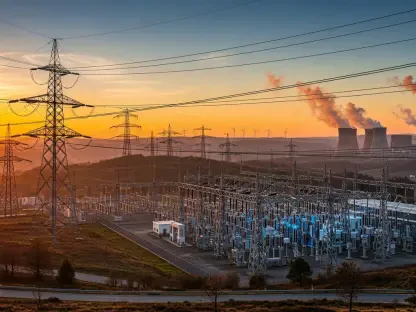Is Chevron’s $55 billion acquisition of Hess just another business strategy, or does it signify a transformative moment in the energy industry? This blockbuster deal comes as Chevron navigates a legal skirmish with Exxon, raising questions about how such moves will reshape the landscape of global energy production. As the dust settles, the implications for both the companies involved and the broader market trends are monumental.
The Deal’s Significance in the Energy Sector
Chevron’s acquisition of Hess represents more than just a significant transaction; it’s a strategic maneuver aimed at consolidating power and expanding its foothold in the industry. This move underlines the importance of adapting to market demands, such as sustainability and efficiency, which are increasingly becoming focal points for energy giants. Investors, eager for growth in a fluctuating sector, look to such acquisitions as necessary for maintaining a competitive edge.
Acquisition Process and Strategic Goals
The path to finalizing the Chevron-Hess deal was fraught with legal battles, primarily stemming from disputes with Exxon that delayed the acquisition. Despite these hurdles, Chevron’s CEO Mike Wirth pushed forward with a clear vision—to streamline operations and bolster the company’s strategic position in the market. This acquisition is not just about expanding assets; it’s about integrating resources in a way that drives efficiency and innovation. Chevron aims to optimize its workforce, though this will involve significant operational changes.
Industry Reactions and Expert Opinions
Industry analysts and experts have weighed in on the Chevron-Hess acquisition, emphasizing its potential to realign market dynamics. Financial observers view the deal as a bold, forward-thinking move likely to set precedents in the sector. Quotes from employees at both Chevron and Hess reflect a mix of anticipation and concern as integration processes unfold. Their perspectives highlight the significant changes and adjustments required, underscoring the transformation’s human impact.
Navigating the Complex Transition
Chevron faces the complex task of integrating Hess into its existing operations—a challenge involving operational changes that are not just procedural but also cultural. The focus on safety protocols is critical, especially given that transitional periods statistically see an increase in safety incidents. Historical data serves as a reminder, prompting Chevron to prioritize safety and support for affected employees, including planned layoffs and severance packages.
Reflecting on What’s Next
As Chevron’s acquisition of Hess reshapes the company’s future, it serves as a reminder of the volatile and dynamic nature of the energy sector, where strategic acquisitions are pivotal for survival and growth. Actionable steps include closely monitoring integration processes and market responses to maximize benefits. In the ever-changing energy landscape, Chevron’s bold decision could indeed set the tone for how major industry players approach growth and innovation.









